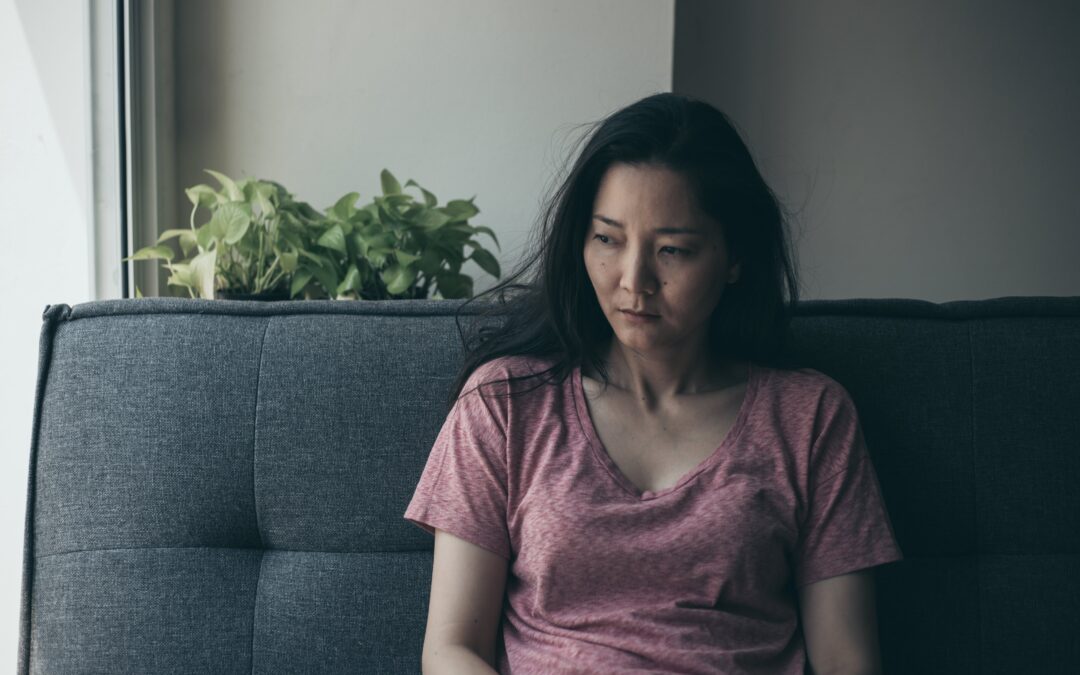Anxiety disorders are among the most common mental health concerns in the United States and throughout the rest of the world. In some cases, anxiety produces mild to moderate symptoms that people are able to manage with medication and occasional outpatient therapy. In other cases, people develop debilitating anxiety that undermines their ability to live a full, productive, and satisfying life.
What is Debilitating Anxiety?
The fifth edition of the Diagnostic and Statistical Manual of Mental Disorders (DSM-5) doesn’t contain criteria for debilitating anxiety. However, this doesn’t mean that this isn’t a real (and serious) condition.
Since we can’t turn to the DSM-5 to understand debilitating anxiety, let’s start by defining “debilitating.”
In a healthcare context, debilitating refers to acute symptoms that prevent a person from functioning in one or more important areas of life:
- Examples of debilitating physical injuries can include traumatic brain injuries (TBI) and paralysis.
- For mental health conditions, symptoms that stop a person from attending school, getting and keeping a job, or simply interacting with others could all be accurately described as debilitating.
The category of anxiety disorders includes several distinct conditions that can cause debilitating symptoms.
Symptoms of Debilitating Anxiety
As we noted at the end of the previous section, anxiety isn’t a single condition. This word can refer to a variety of disorders, including (but by no means limited to) generalized anxiety disorder (GAD), panic disorder, social anxiety disorder, and specific phobia.
The common element among these disorders is that they all involve excessive worry and overwhelming fear. They may also cause distressing physical symptoms.
Depending on which disorder you have developed, the following are potential symptoms of debilitating anxiety:
- Dizziness and lightheadedness, to the point that you think you are going to pass out
- Rapid heart rate and chest pain, which can cause you to believe that you are having a heart attack
- Dissociation, or feeling that you have become detached from your body, your thoughts and feelings, or your surroundings
- The sensation that you are being smothered, choked, or otherwise unable to breathe properly
- Finding it difficult or virtually impossible to meet new people, speak in front of others, or otherwise participate in events where you fear that you may be judged
- Being unable to leave your house alone (or, in some cases, even in the company of friends or family members)
- Inability to perform to your full potential at work or in school due to persistent fears and worries (which can become so severe that you are forced to drop out of school or quit your job)
- Persistently feeling as though you are in imminent danger, which can impact you both physically (such as via sleep problems, appetite changes, and muscle tension) and psychologically (by undermining your ability to focus, concentrate, and make healthy decisions)
Can This Type of Extreme Anxiety Be Cured?
As difficult as debilitating anxiety can be, you should not give up hope. With proper care, you can regain control of your thoughts and learn to manage your symptoms.
It is important to realize that, in most cases, debilitating anxiety is considered to be a chronic condition. This means that you may never be completely free of symptoms (and thus never be technically “cured”). But treatment can significantly reduce your distress and improve your overall quality of life.
How to Solve Debilitating Anxiety
Managing the symptoms of debilitating anxiety can involve a combination of professional care, lifestyle changes, and ongoing support.
Medical Treatment Options
Treatment for debilitating anxiety often begins with inpatient care. While you are in an inpatient program, you will live at the facility where you are receiving treatment. This allows you to temporarily step away from the stresses and distractions of daily life, so you can focus your full attention on your treatment and your health.
After you complete inpatient care for debilitating anxiety, you may also benefit from receiving step-down support in a partial hospitalization program (PHP) and/or an intensive outpatient program (IOP). While you are in a PHP or an IOP, you can continue to work with skilled professionals and receive an array of quality clinical services. However, when treatment is not in session, you can return to your home or to an alternative supported residence.
At-Home Things You Can Do to Complement Your Treatment
Before you enter treatment, after you have transitioned out of care, or while you are in a PHP or IOP, here are a few tips for managing your symptoms and easing any distress that you experience:
- Practice mindfulness
- Follow a nutritious diet plan
- Incorporate enjoyable physical activity into your daily schedule
- Avoid alcohol and other mind-altering substances
- Keep a journal to record your thoughts and gain a new perspective on your experiences
It is also very important to resist the urge to isolate yourself. Develop a personal support network of close friends and/or trusted family members. Make the effort to reach out to at least one person every day (this can include emails, text messages, phone calls, video chats, or in-person get-togethers).
Additional Resources for Debilitating Anxiety
The following resources can be valuable to you before, during, and after your time in treatment:
- Anxiety and Depression Association of American (ADAA) Support Group Finder
- Mental Health America (MHS) Support Group Links
- National Institute of Mental Health (NIMH) Anxiety Disorders Page
- 988 Suicide & Crisis Lifeline (which can also be accessed from anywhere in the U.S.by calling 988)
Contact Montare at the Valley About Our Treatment in Los Angeles, California
Montare at the Valley offers comprehensive care for adults in the Los Angeles area whose lives have been disrupted by debilitating anxiety and other complex mental health concerns. At our anxiety treatment center in southern California, you can work in close collaboration with a team of compassionate professionals who truly care about you.
To learn more or to schedule a free assessment, please visit our Contact Us page or call us today.


Recent Comments